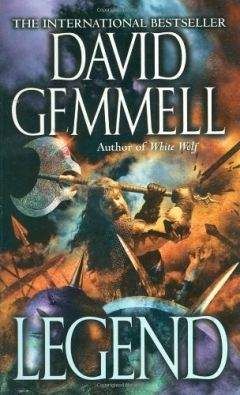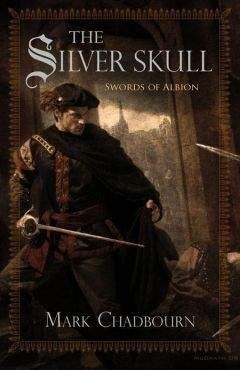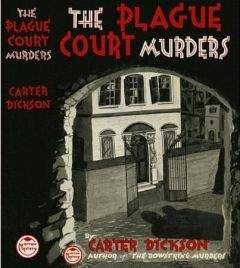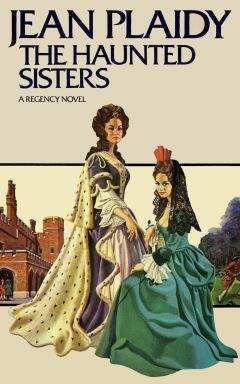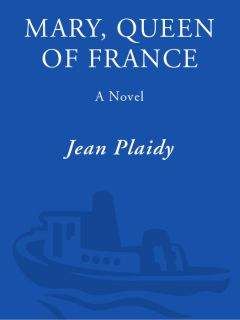Jean Plaidy - For a Queens Love: The Stories of the Royal Wives of Philip II

Скачивание начинается... Если скачивание не началось автоматически, пожалуйста нажмите на эту ссылку.
Жалоба
Напишите нам, и мы в срочном порядке примем меры.
Описание книги "For a Queens Love: The Stories of the Royal Wives of Philip II"
Описание и краткое содержание "For a Queens Love: The Stories of the Royal Wives of Philip II" читать бесплатно онлайн.
Now he listened to the impassioned words of Siliceo and the Prince’s grave questions and answers.
Was it true, this history which they were teaching Philip? Had Isabella and Ferdinand been as devoted to the good of Spain as Dr. Siliceo implied? The Jews were the cleverest traders in Spain; and when they were condemned to death, the confiscation of their lands and goods had enriched the Catholic monarchs. But was it so wise to take the results of industry and destroy the source?
Such thoughts were dangerous, and Ruy was glad when the session was over. It ended as usual with the compliments of Dr. Siliceo to his Royal Highness.
After that it was time for the Prince’s fencing lesson. When Ruy was helping him to dress for this he smiled, and Philip demanded to know the reason why. Great was the intimacy between them, so Ruy told the Prince that he was thinking that he would not be so softly treated by Zuñiga as he was by Siliceo.
“Indeed not,” said Philip. “Zuñiga says what he means, but Siliceo what he thinks it behooves him to mean.”
Ruy thought how astonishing the Prince could be. While he was gravely accepting Siliceo’s praise, he knew it for gross flattery; and while with equal imperturbability he accepted the blunt words of Zuñiga, he knew them for truth.
A strange boy, this Philip. Young as he was, he made it difficult for others to read the thoughts behind his pale eyes; and as he grew older it would be even more difficult.
Ruy was tempted to go on: “And Dr. Siliceo’s assessment of the past, your Highness, do you feel that to be as tempered as his assessment of your aptitude for learning?”
Philip said slowly: “I doubt not that he flatters my ancestors as he flatters me. But one thing there is of which we can be certain: There are heretics in the world … even in Spain … and we must not rest until we have destroyed them.” The pale eyes had turned to a deeper shade of blue, which was due to the sudden bright color in the Prince’s cheeks.
“Your Highness has read the works of this Martin Luther?”
Philip looked at Ruy in horror. “Read the words of Martin Luther! But that in itself is a sin.”
“A sin, of a surety,” said Ruy quickly. “But can you judge the man’s teachings if you have read nothing of them?”
“This is a jest in bad taste,” retorted Philip haughtily.
Ruy saw him in a new light. Here was the shadow of the man-to-be seen passing across the face of the boy … a ghost from the future. The calm, clear mind would never be calm nor clear on this subject. Ruy must remember that.
“In great bad taste, your Royal Highness; and for it I crave your pardon.”
Philip smiled as he rarely smiled. He loved this Portuguese boy and because of that he would forgive him much.
“You love to jest,” he said. “I know that.” His eyes were a little stern as he added: “It is well that you make such jests only before me and not in the presence of others.”
“But I have no wish to jest in the presence of others.”
Philip gave one of his rare laughs. This was his true friend, and he had few true friends; he was quite aware, in spite of all the adulation he received, that he did not easily inspire affection.
“I shall be late for the fencing lesson,” he said, “and that will put Master Zuñiga into a bad mood to begin with. But Ruy, before I go, I will tell you this: While we were talking with Siliceo I made a vow. I determined that in the centuries to come the world should remember Philip of Spain for his services to Christ. I will establish the true religion throughout the world. That is my dream. It shall come true … so help me God.”
Ruy knelt and kissed his hand, but Philip hastily snatched it away. He was moved, and he was always embarrassed when he feared he might show his feelings.
He hurried to the fencing lesson, dreaming glorious dreams of the future.
Left alone, Ruy pondered. To be remembered for his services to Christ. But who should say which was the best way of serving Christ? Ruy tried to shut out of his mind his own picture of the grim torture chambers of the Inquisition, of the autos-da-fé, of mangled bodies in that yellow garment of shame, the sanbenito, with the flames scorching them while their cries of agony rose up to Heaven. He heard the voices of Dominicans chanting as they watched the flames; he saw their eyes gleaming through their masks. “In the service of God … in the service of Christ …” they chanted. Yet those martyrs, while the flames licked their bodies, had been known to cry: “I die in Christ. I die for the glory of God.”
Ruy’s dream of the future was different from Philip’s, and Ruy was thoughtful, for he knew that the threads of his life were inextricably woven with those of the boy who had just left him.
We are both dreamers, he pondered. We are both dreaming our different dreams.
Leonor had a new baby to nurse on her lap. Philip, with amusement, could watch her clucking over the child as once she had clucked over him; once he must have looked very like his sister Juana.
This child was the sequel of the Emperor’s visit, and before Charles left Spain there was yet another baby; this time the child was a boy.
Philip knew that the birth of his brother made him a little less important in the eyes of Spain. If he should become still more delicate, they would not be quite so anxious now.
Often he would steal into the nursery and look at the little boy in the cradle, imagining him, instead of himself, growing up, listening to the Emperor telling him of the dominions he would one day inherit.
The Emperor had returned to his dominions abroad, where his presence was urgently needed because of the menace of the Kings of France and England, and the spreading Lutheranism among the German Princes.
It was a year or so after his departure when Philip, on entering the nursery one day, found his little brother lying on the floor in a strange position. He thought at first that the child was playing some game.
“Get up,” he cried. “You will hurt yourself if you kick like that.”
Bending over the child, Philip saw that his face was distorted; his eyes rolled, showing the whites so that he looked grotesquely unlike himself. It was clear that he did not know his brother. He had bitten his tongue, and there was blood and foam at the side of his mouth and dribbling down his chin. A spasm seemed to pass through his body; he kicked furiously and lashed out with his arms. As Philip watched in horror, the little body became quite rigid and the breathing seemed to stop. Then the boy’s legs began to jerk spasmodically; he started to breathe again; his face became bloated and he was gasping for his breath.
Philip called out in horror and Leonor came running in. She took one look at the child and crossed herself.
“We must do something,” cried Philip. “What ails him?”
“Stand back!” cried Leonor. “The devils within him might leap out … and into you. That is what these evil-wishers would like. Stand back, I say.”
“But he will injure himself. Look, Leonor. How can we help him?”
“We can do nothing but pray … pray the saints to help us fight this evil. I have seen him thus before. It passes. The evil spirits tire within him … and they let him rest. But each time he grows weaker. Go! I beg of you, go … lest they leave him and enter you … which is what they are trying to do.”
Philip, obedient as ever, went to his own apartments.
Ruy was there, and Philip was glad of that. He sank on to a stool and told Ruy what he had seen.
“There are people here who wish me ill, who wish my family ill. Some witch has cast a spell upon my brother.”
Ruy said nothing for a while. He was thinking that they would soon begin to look for the ill-wisher. Their eyes would fall upon some person … someone whom they wished to accuse. That person would be taken before the Inquisition, his body—or hers—broken in the torture chambers until a confession was extorted. But the explanation was simple. Ruy knew it. Not far away in the Alcázar of Tordesillas was a mad woman; and could madness be passed on just as the color of the eyes and the hair was passed on? Philip had his father’s yellow hair and blue eyes. Why should not Philip’s brother have inherited his grandmother’s madness?
“What are you thinking, Ruy?”
Ruy spoke boldly. “It might be that someone has not put a spell upon him. He might have been born with this weakness.”
It was impossible to know what was behind the mild blue eyes, but the Prince was waiting for his friend to continue.
“He is not strong,” went on Ruy. “There are sicknesses of the mind as well as of the body. Sometimes the body wastes away, sometimes the mind. It might have nothing to do with witchcraft.”
“Why should my brother be born with weakness? My father is strong, is he not? My mother also is strong.”
“Yes, but …”
Philip knew. He had heard gossip about his grandmother. He knew now that she was not dead. He knew that there was a secret about her that was kept from him. He would not admit to Ruy that he did not know the nature of that secret.
He tried a shot in the dark. “You think of my grandmother?”
The shot hit its mark. Ruy bowed his head.
Philip tried to curb his curiosity. It would not become a prince to ask questions, concerning his own family, of a subject. But now he felt the shadow of his grandmother closer to him.
And when, a few weeks later, his brother died, it seemed closer than ever before.
THREE
Philip was twelve years old when his father, recently returned to Spain, broached the subject of marriage.
“You are twelve, my son. A fair age for a prince. We must get you a wife.”
Philip murmured his thanks. None would have guessed his apprehension. The duties of a prince were numerous. Now the burden of possessing a wife was to be added to them.
“I have a fine match for you,” said the Emperor.
Philip waited. There had been other matches that had come to nothing. That was how it was with the suggested matches of princes. Everything depended on politics, on war and peace. Events might throw him a lovely young girl or a woman three times his age; whichever came, he must accept her. That was part of his duty.
So he waited in trepidation for his father’s next words.
It was typical of the Emperor that he should produce a map of their country. Thus were brides chosen for such as Philip.
“Now here is our country. Here is Navarre, which we conquered and added to our realm. You see how it borders on Old Castile. Now here are the Pyrenees Mountains, and on the other side of them is a continuation of Navarre, which is at the moment a dependency of France. How much more satisfactory it would be if the entire territory of Navarre belonged to Spain! But the conquest was not completed. There is a King of Navarre, as you know, living on the other side of the mountains—a vassal of King Francis. Now, this King Henry of Navarre has a daughter who will one day inherit his kingdom, for he has no sons, and is unlikely to have them.”
“She is to be my wife, Father?”
“That is so. You do not seem pleased.”
“I was rather surprised, Father. A daughter of such a small state to mate with Spain?”
The Emperor laid a hand on his son’s shoulder. “You do well to wonder, my son. I will explain. Navarre is a small kingdom. It is not worth very much … in itself. But, Philip, it is the key to France. Give me a foothold in my enemy’s territory and I verily believe that before long we may add the kingdom of France to our Empire.”
“I see, Father.” He was longing to ask about the girl. He tried to remember all he had ever heard of Jeanne d’Albret. He must show no eagerness, no desire to investigate the human side of this marriage. That was unimportant to Spain; therefore it must be unimportant to him.
The Emperor said: “You are indeed fortunate. Your bride might have been an old woman. She might have been a widow. She might have been four times your age. But no! She is a young girl of twelve … your own age. She is a high-spirited, handsome creature, Francis’s own niece, the daughter of his beloved sister and that sly old fox Henry of Navarre. I’ll tell you something, Philip. Francis is against the match. Of course he is against the match. He may be fond of dallying with his poets and his painters and his women in their mirrored baths, but he’s no fool. He does not want me to have one foot on what he considers to be his land. He would like to get back our Spanish Navarre, I doubt not. You can depend upon it, that is a dream of his. I’ll tell you something else: I am in secret negotiations with Henry of Navarre for his daughter. Yes; but at the moment Francis keeps her a close prisoner at Plessis-les-Tours. Yet her father longs for the marriage with Spain. And who would not? Why, my son, you are the greatest catch in the world. There is not a father who would not rejoice to unite his daughter with us. Nor a mother … except, of course, Henry’s wife, Marguerite, who thinks only of her brother’s wishes. They are like lovers, Francis and Marguerite, and some say that the bond between them is actually closer than that of brother and sister. Nor would I be unwilling to believe aught of the King of France.”
“And the girl … Jeanne,” said Philip, “what does she think of the match?”
“She is eager. You can be sure of that. She, a humble daughter of Navarre, to be the Queen of Spain!”
“I would I could see a picture of her.”
“You shall. I’ll ask her father for it.”
“And the marriage … when would it take place?”
“As soon as the arrangements can be made. You are a man. You are twelve years old. Why should you wait, eh?” The Emperor looked down into the grave face of the boy. “Now that I am home, you and I will meet every day. We will talk of state matters. You must learn something of the difficulties of governing an empire. You must learn how to choose your counselors; how to use them so as to prevent their using you. They will try all sorts of means. They will flatter you. They will try to tempt you through women. There is much I shall have to say to you, my son.”
Philip nodded gravely. He was thinking: I am a man now. I am to have a wife.
He thought of her continually. He believed he was rather childish when he was alone. He talked to her sometimes, but not aloud. He would have felt deeply ashamed if any had heard him.
“Jeanne,” he said, “little Jeanne.” For, in his thoughts she was little; she was smaller than he was. It was a sore point that so many of his age were bigger. “Little Jeanne, you must not be afraid of the ceremonies and the grandees and the importance of all this. I know that you are but heiress to a small kingdom, and now you are a princess of Spain—to be its Queen one day—but do not be afraid, Jeanne. I will look after you.”
She would be dark, he thought, in contrast with his own fairness. Her skin would be soft, and she would be gentle and loving, so that when they were alone together they could say anything to each other. He could love her as frankly as, when he was a baby, he had loved Leonor.
Подписывайтесь на наши страницы в социальных сетях.
Будьте в курсе последних книжных новинок, комментируйте, обсуждайте. Мы ждём Вас!
Похожие книги на "For a Queens Love: The Stories of the Royal Wives of Philip II"
Книги похожие на "For a Queens Love: The Stories of the Royal Wives of Philip II" читать онлайн или скачать бесплатно полные версии.
Мы рекомендуем Вам зарегистрироваться либо войти на сайт под своим именем.
Отзывы о "Jean Plaidy - For a Queens Love: The Stories of the Royal Wives of Philip II"
Отзывы читателей о книге "For a Queens Love: The Stories of the Royal Wives of Philip II", комментарии и мнения людей о произведении.





